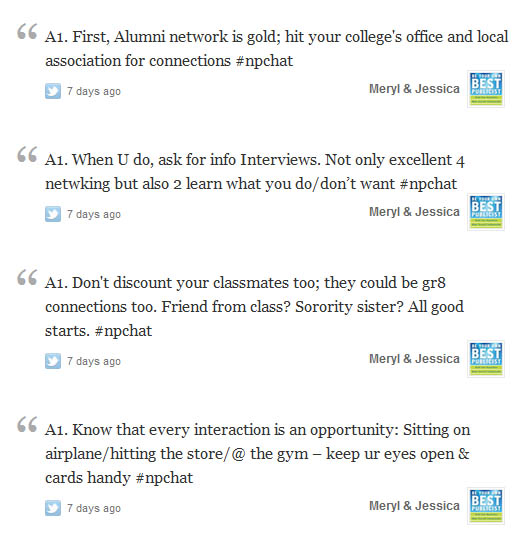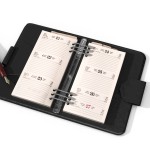About one week into my job, I wondered if I oversold myself during my interviews. I’m not saying I lied—no one should ever lie in an interview—but I had to question if I made it clear that I had zero PR experience when I landed my first position at a PR agency in August.
I took the advertising and PR classes in college, toiled at the obligatory unpaid internships in marketing and promotions and gained more than two years of marketing experience after graduation. With that said, I still didn’t know what a media list or subject matter expert was.
I had a lot to learn, not only about our clients’ businesses, but also the business of PR; I was terrified.
I had more than a few sleepless nights in the beginning, worrying about how I was going to tackle my projects. But in the past six months, I’ve embraced agency life and realized that, when it came to my early fears, there was more than met the eye:
Phone pitching is daunting.
I’ve never been a big phone talker. Calling up complete strangers (reporters) and telling them to cover a story idea made me feel like a telemarketer. I couldn’t believe that this was a common practice in PR. Why would a reporter care about me, someone they’ve never met, and my client, a company they’ve never heard of? Little did I know, with a good story idea, a knowledgeable expert and some flexibility, reporters do care.
Phone pitching is part trial and error and part knowing your stuff. I still get intimidated by phone pitching, but when we have a great idea, know our client’s expertise and go into the call with the intent of having a conversation, the results are always positive.
Plus, reporters are just people, too.
Media lists are crucial.
If you start with the wrong reporter, your pitching will get you nowhere. My first media lists were terrible. I relied on Cision to tell me who to pitch, rather than going to the source and figuring out who would want to cover our story. Having reporter history and past articles is great ammo for pitching and makes having an intelligent conversation with a reporter much easier.
My colleagues had me work and rework the early media lists, partly because I didn’t know Cision could be wrong (I would say it’s 50/50 on being right/wrong about a reporter’s beat). I feel that I am getting better at gauging who would cover a story, and I still edit, add and delete as I get on the phone with folks.
Seeing red doesn’t make you a bad writer.
My roots are in journalism: up until sophomore year of college, I thought I was going to be a reporter. I have adequate knowledge of AP style and proper grammar. I’ve been published in a few outlets. I thought I was a decent writer. When I started writing for PR, I lost most of my confidence.
My press releases, emails, media alerts, pitches—anything I wrote, really—came back with red ink all over the page. Seeing all the edits was definitely a blow to my ego. In time, I’ve seen that seeing red actually makes you a better writer. Considering I came from marketing, I wasn’t expected to know how to write a pitch. My writing style was much more focused on sales for marketing purposes, where PR is more about featuring news. My writing evolved. I learned to dig deep into a pitch and figure out where the story is, and I see less and less red as a result.
Social media isn’t the devil.
After coming from a few corporate cultures where using social media at work is frowned upon, I was excited to see that not only was I allowed to use social media at work, it was encouraged! The transition was difficult in the beginning. I felt a little naughty, checking Twitter for updates, retweeting during the workday and actually responding to messages between 9 a.m. and 5 p.m.
Social media is part of my job, and I’m expected to stay on top of the news, retweet important content and interact with journalists during the day. I’ve had a handful of pitches that have sprouted from a breaking news tweet or friendly correspondence with a reporter. You never know what future opportunity can come out of social media.
You always have something to bring to the table.
When I joined my agency, I didn’t know what a ProfNet was. I didn’t know how to use Cision. I didn’t know how to write an expert available pitch. I knew nothing about my clients. Having every task in your job be completely new can weigh heavily on you.
However, not knowing the PR ropes didn’t mean that I didn’t have unique skills to contribute. Being a relative news junkie, I was able to spot breaking news stories and find angles where our clients could comment. My background in marketing has lent to assisting one of our clients with a website revamp. Having knowledge of graphic design programs allows us to offer additional design services to our clients, if needed.
And, we all have ideas. I was reserved in meetings, reluctant to share my thoughts. What do I know? I’m the new kid—my colleagues are the experts. But, we all read different publications and have different skills, experiences and approaches to thinking. I try to share my opinion more now, since there is no ‘wrong’ in brainstorming. No matter your level of PR knowledge, the next big idea could be yours.
My first six months in PR were definitely a roller coaster. I’m still adjusting and always learning, which I don’t think will ever go away. If we’re lucky, we’ll keep adding new clients, changing the game all over again. PR is never dull, and much like snowflakes, no two days in PR are ever the same.
While the unknown of each day used to stress me out, I try not to waste my energy worrying about what I don’t know and instead revel in the small victories that make it all worthwhile: being ahead of breaking news to land our client in the New York Times, securing an interview with a Reuters reporter, watching our client on live TV at 7 in the morning.
Don’t you just love PR?
What were some of your biggest challenges when you started your first PR job? Did you recently transition to PR from another field? Share your experiences below!
 Heather Sliwinski is an account executive at KemperLesnik, a Chicago-based public relations agency, providing media relations and social media services to a variety of B2B clients. She has held positions in marketing and event planning for corporations, nonprofits and higher education. She earned a bachelor’s degree in journalism and mass communications with an emphasis in strategic communications from the University of Wisconsin-Madison. Sliwinski is the blog co-chair for the PRSA New Professionals Section. Feel free to connect with her on LinkedIn or Twitter.
Heather Sliwinski is an account executive at KemperLesnik, a Chicago-based public relations agency, providing media relations and social media services to a variety of B2B clients. She has held positions in marketing and event planning for corporations, nonprofits and higher education. She earned a bachelor’s degree in journalism and mass communications with an emphasis in strategic communications from the University of Wisconsin-Madison. Sliwinski is the blog co-chair for the PRSA New Professionals Section. Feel free to connect with her on LinkedIn or Twitter.



